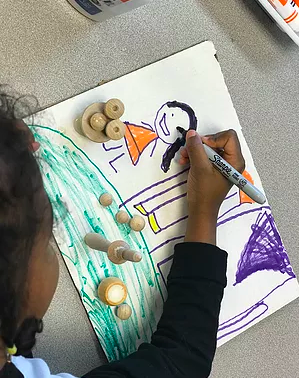Parent's Place
NAEYC provides 6 principles of effective family engagement that we strive to meet:
Programs invite families to participate in decision making and goal setting for their child. Programs invite families to actively take part in making decisions concerning their children’s education. Teachers and families jointly set goals for children’s education and learning both at home and at school.
Teachers and programs engage families in two-way communication. Strategies allow for both school- and family-initiated communication that is timely and continuous. Conversations focus on a child’s educational experience as well as the larger program. Communication takes multiple forms and reflects each family’s language preference.
Programs and teachers engage families in ways that are truly reciprocal. Programs and families benefit from shared resources and information. Programs invite families to share their unique knowledge and skills and encourage active participation in the life of the school. Teachers seek information about children’s lives, families, and communities and integrate this information into their curriculum and teaching practices.
Programs provide learning activities for the home and in the community. Programs use learning activities at home and in the community to enhance each child’s early learning and encourage and support families’ efforts to create a learning environment beyond the program.
Programs invite families to participate in program-level decisions and wider advocacy efforts. Programs invite families to actively participate in making decisions about the program itself. Programs also invite families to advocate for early childhood education in the wider community.
Programs implement a comprehensive program-level system of family engagement. Programs institutionalize family engagement policies and practices and ensure that teachers, administrators, and other staff receive the supports they need to fully engage families.

